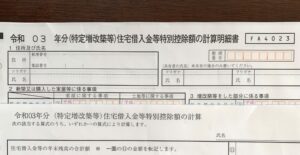Business commencement expense(Kaigyou-hi、in Japanese)
Business commencement expense(Kaigyou-hi、in Japanese)is an item related to all people who start a self-employed business in Japan, regardless of nationality.
However, not all the expenses incurred before opening a sole proprietorship can not be business commencement expenses.
If you apply wrongly, the tax office may point out you.
On the other hand, a better understanding of this can wisely reduce the tax burden.
In this blog, I will mention the followings:
- Among pre-opening expenses, what can be the business commencement expense?
- How and when should the accounting entry be made for the business commencement expense?
- What is the term and method for amortising this expense as a deferred asset?
目次(Table of contents)
Among pre-opening expenses, what can be the business commencement expense?
The Income-tax law states that a business commencement expense is an expenditure as below-prescribed by Cabinet Order that an individual makes in connection with business operations generate property income, business income, forest income, or miscellaneous income, and that will continue to have an effect on one year or more after the day of the expenditure.
< From Cabinet Order >
- Advertising expenses, entertainment expenses, travel expenses, market research expenses and so on, especially spent for opening preparations.
- Interest on debts, especially for opening practices, land/house rent, utilities, etc.
The most important thing here is that you can confidently explain that the expenditure is necessary to commence business.
However, fixed assets such as fixtures and machines costing 100,000 yen or more per item, security deposits required to rent housing, purchase costs and so on are not business commencement expenses(※).
※: They are fixed assets, other deferred assets, and inventories(eventually, cost of goods sold), respectively.
How and when should the accounting entry be made for the business commencement expense?
In principle, it is at the start date of the sole proprietorship that sole proprietors make entries regarding business commencement expenses.
An entry is to use a deferred asset, literally ' Business commencement expense' for the debit and an account called 'Primary Payments' or 'Proprietor borrowing' for the credit.
※:' Primary Payments' or 'Proprietor borrowing' stands for initial money that sole proprietors contribute as capital.
Since this expense will affect the future business, we classify it as a "deferred asset" and amortise for one year or over more years.
What is the term and method for amortising this expense as a deferred asset?
Regarding amortisation, the taxpayers may choose either of the followings:
- 60 months straight-line amortisation.
- Amortisation of any amount for any period.
Like the latter, any amount of depreciation is possible in any year by clarifying the tax return.
(To do this, proprietors must keep accounting journals on transactions by a double entry, allowing them to submit both the balance sheet and income statement.)
For that, please foresee the level of business income from the first business year to several years ahead or the level of other income each year.
You can reduce your taxable income and pay less tax by effectively amortising business commencement expenses over the years.

